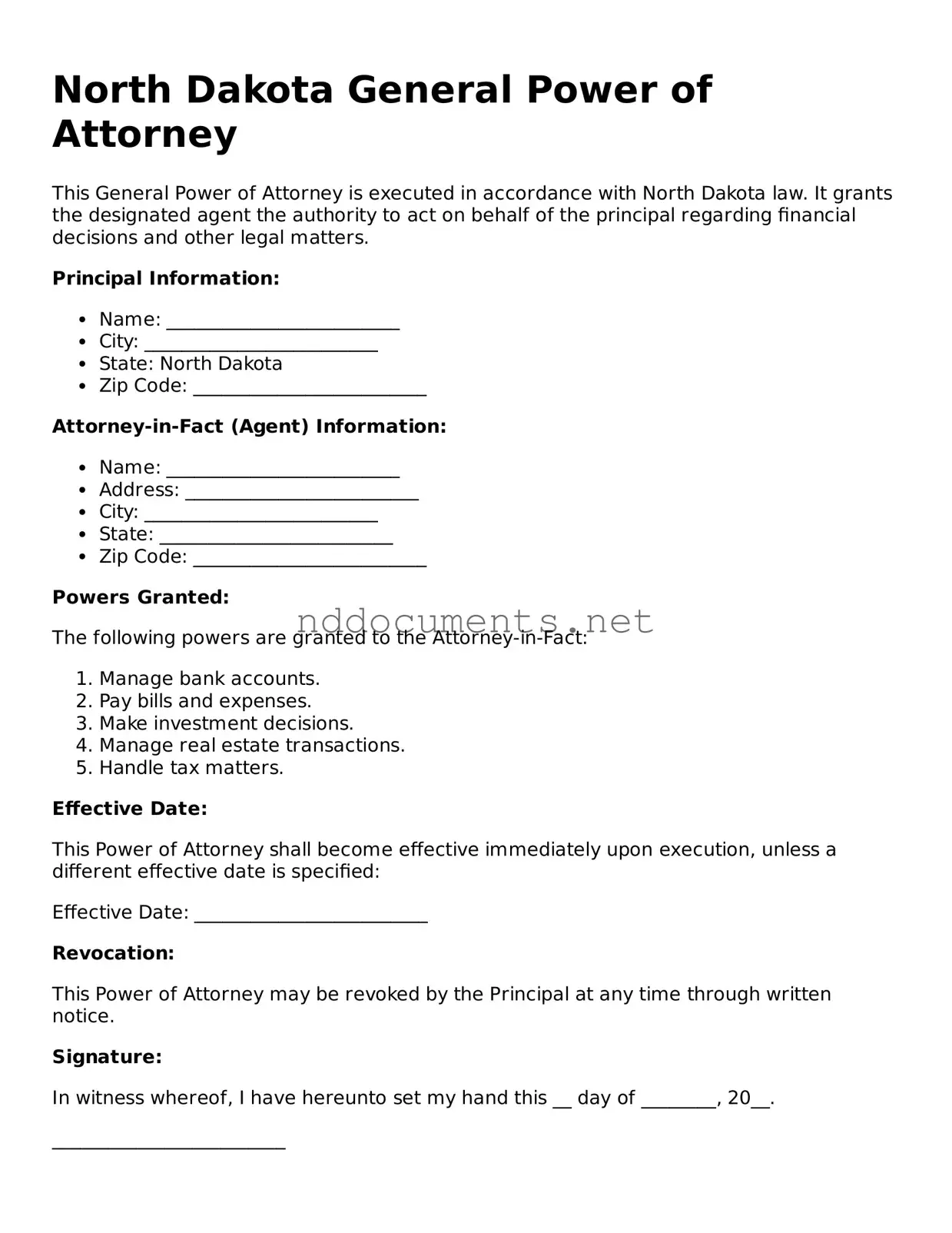Fillable General Power of Attorney Document for North Dakota
A North Dakota General Power of Attorney form allows an individual, known as the principal, to grant authority to another person, called the agent, to make decisions on their behalf. This document can cover a wide range of financial and legal matters, providing flexibility and convenience. Understanding its purpose and how to properly execute it is essential for ensuring your wishes are respected when you cannot act for yourself.
Make Your Document Online

Fillable General Power of Attorney Document for North Dakota
Make Your Document Online

Make Your Document Online
or
➤ General Power of Attorney
Don’t walk away from an unfinished form
Finish General Power of Attorney online quickly from start to download.